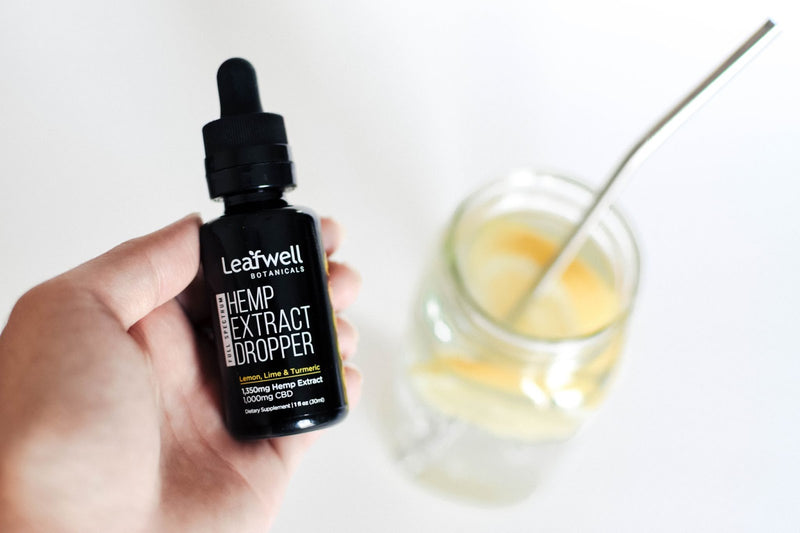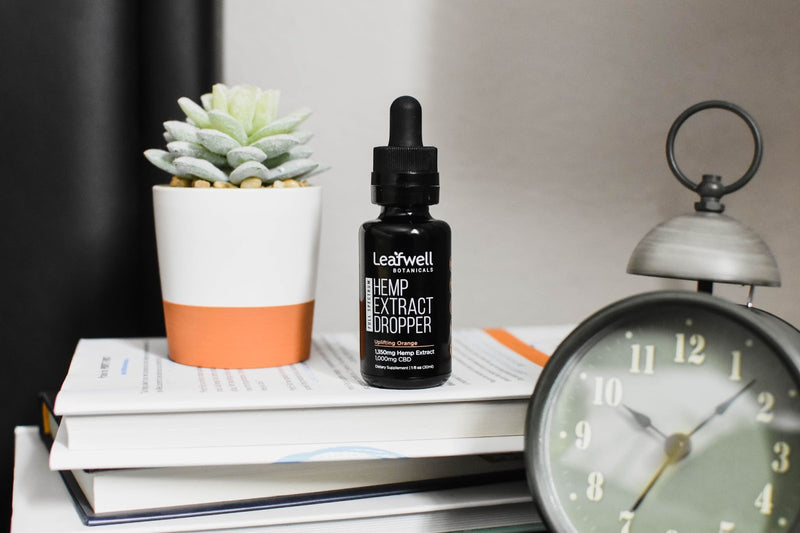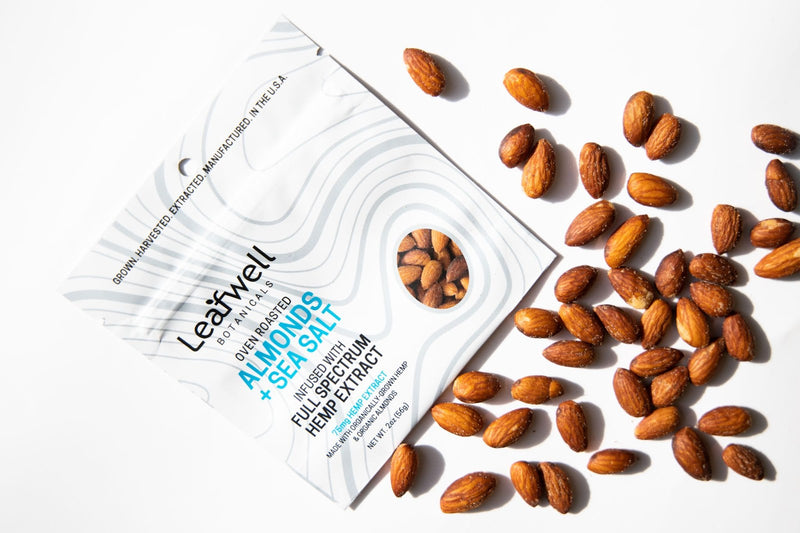Does MCT Oil Cause Diarrhea? Side Effects and Common Uses
MCT oil is a type of fat derived from either coconut oil or palm kernel oil. It is special in that it contains a high concentration of a particular type of fat that is not typically found in your everyday sources of dietary fat. This type of fat is known as medium-chain triglycerides, or more commonly referred to as MCTs.
MCT oil is becoming increasingly popular as a result of its potential health benefits, but many people also wonder if MCT oil has any adverse side effects. For example, does MCT oil cause diarrhea?
This article will answer any question you may have about MCT oil, including how it is made, what its common uses are, and what kinds of side effects, if any, you may experience when taking MCT oil as a supplement. Read on for more!
What Are MCTs?
MCTs, or medium-chain triglycerides, are a type of fat. They are best understood when explained in contrast to LCTs, or long-chain triglycerides, the more common type of dietary fat. You can find LCTs in fish, meat, coconut oils, and nuts, while MCTs are most present in coconut oil, palm kernel oil, and, of course, MCT oil (which is derived from either coconut oil or palm kernel oil).
A fat, or triglyceride, is made up of three fatty acids and glycerol. The “medium-chain” and “long-chain” parts of MCTs and LCTs, respectively, refer to the length of their fatty acids. In other words, MCTs have shorter fatty acids (around 6-12 carbon atoms) than LCTs (around 13 to 21 carbon atoms).
This is relevant because the shorter fatty acid length in MCTs means that the body is better able to break them down than LCTs. Later, we’ll dive more into how the body will then be able to absorb MCTS quicker and more efficiently than it would LCTs.
Your body responds to fat intake in one of two ways: it converts the fat into energy, or stores it as body fat. Typically, the body uses carbs as energy while any fat consumed is stored as fat. However, MCTs with 9 or less carbon atoms are unique when compared to other types of fats because they move directly to the liver during the digestive process. This means that the body is more likely to use MCTs as an energy source meaning it won’t be stored as fat.
What Is MCT Oil?

Knowing what you now know about MCTs, you can probably guess what MCT oil is just based on its name alone. Either way, we are still going to make it crystal clear:
MCT oil is the premier source of medium-chain triglycerides. It takes the high levels of MCTs in coconut oil and/or palm kernel oil and concentrates them even further, making a product that is either 100% MCTs or a combination of MCTs and beneficial LCTs.
In addition, most MCT oils primarily contain caprylic acid (8 carbon atoms) and caproic acid (6 carbon atoms). These MCTs have the shortest fatty acids of any of the MCTs, and are the most efficiently absorbed.
MCT oil can be used in a bunch of different ways. You can take MCT oil directly, as a supplement, or consume it as a carrier oil, in addition to the CBD oil or essential oils and/or supplements that it is “carrying”.
What Is MCT Oil Used For?
You can take MCT oil for a variety of reasons. For one, people that have issues with fat absorption may take an MCT oil supplement alongside another type of fat (such as omega-3 fatty acids), since the body can digest, absorb, and use MCTs more efficiently than other, more common types of dietary fat.
Additionally, the body is more likely to use MCTs as a source of energy, as opposed to storing them as body fat. This means that MCT may be able to support better energy levels without needing to consume coffee or carbohydrates.
People on a low-carb keto diet, for example, believe that MCTs allow for the production of ketones, which are byproducts of fat-burning. In the absence of carbohydrate-based glucose, the body burns its stored fat (and supposedly aids weight loss) and then uses ketones for energy.
Last but not least, MCT oil is commonly used as a carrier oil for essential oils and supplements like CBD oil. This is because of MCT oil’s superior absorption rates and neutral flavor make it one of the best carrier oils available.
The fact that CBD oil is fat soluble in its natural form, as opposed to water soluble, is one of the main reasons why MCT oil is the most popular carrier oil for it. CBD oil is able to easily dissolve in MCT oil without other unsavory ingredients or chemical processes while still allowing it to be used efficiently and effectively by the body. It also helps that MCT oil is absorbed so well by the body and is great for you on its own.
At Leafwell Botanicals, we use organic MCT oil as a carrier oil for all of our CBD products, from our tinctures to our CBD Peanut Butter. This ensures that you can get the most out of our products and support your overall wellness in the healthiest and most effective way.
What Are The Potential Side Effects of MCT Oil?
MCT oil is generally safe, and there are few reported side effects. For the most part, humans can tolerate MCT oil well. By “tolerate” we mean that the chance for adverse reactions is very unlikely, and of the few side effects reported, they are mild to moderate, rather than severe.
In addition, evidence at the moment points to medications not having negative interactions with MCT oil. Even so, you should talk to your doctor before taking MCT oil, especially if you take other medications, to check and make sure that MCT oil does not interact with any medication you’re taking.
The ideal daily serving size of MCT oil is 1 to 5 tablespoons, with an upper range of 4 to 7 tablespoons. Your doctor or a nutritionist may be able to help you determine which serving size is best for you, based on your particular needs and your health background.
The best way to take MCT oil is by spreading out your daily servings throughout the day as opposed to all at once and by not taking it on an empty stomach. In doing so, you can minimize any irritation to your digestive system by not overloading it with fats all at once while also distributing the benefits of MCT oil throughout your day.
Many people add their MCT oil supplement to food items, such as smoothies or salad dressings. Alternatively, you can take MCT on its own. In case you were thinking of using it as a cooking oil, MCT oil has a lower burning point than other oils, and is not great to use for any cooking or frying. Coconut oil is better for cooking and also contains high amounts of MCTs (though be aware of its elevated saturated fat content).
If you go beyond the recommended daily dose of MCT oil, you may experience some side effects which include gas, stomach pain, bloating, diarrhea, cramps, and potentially vomiting. As you can see, these side effects are almost exclusively limited to your gastrointestinal region and it is because of the fat overload which can cause some discomfort in many people’s stomachs. The best way to avoid these negative side effects is by sticking to the recommended serving sizes and spreading your MCT oil consumption throughout the day.
You can also help your body adjust to MCT oil by slowly incorporating it into your diet. In other words, start with a lower serving size and gradually build up to where you feel comfortable. When you give your body time to get used to MCT oil, you will be less likely to experience negative side effects.
Lastly, MCT oil is a great source of fats but it should not be your only fat source. Supplement your MCT oil fat intake with good sources of omega-3 and omega-6 fatty acids, such as fish, nuts, and seeds through your regular diet.
In Conclusion
MCTs, or medium-chain triglycerides, are a type of fat that contains medium-length fatty acids. Since these fatty acids are shorter than those found in the more common type of dietary fat (LCTs), the body digests and absorbs them more efficiently. They are also sent directly to the liver, where they can then be used as energy, rather than stored as body fat.
MCT oil is a concentrated source of MCTs, derived from either coconut oil or palm kernel oil (we only source ours from coconut oil). You can use MCT oil as a supplement for various reasons, including better absorption of fats and improving energy levels. MCT oil is also an excellent carrier oil for CBD oil and other fat-soluble essential oils & supplements, aiding their absorption and diluting them to make it easier to measure the proper serving size.
Most people tolerate MCT oil well, but if you take too large a dose of MCT oil you may experience diarrhea, bloating, cramps, and other non-serious gastrointestinal issues. You can avoid these by not taking too much MCT Oil at once, taking it after a meal, gradually adding MCT oil to your diet, and sticking to a serving size that delivers the benefits you’re looking for without upsetting your stomach. In general, MCT oil is a safe and beneficial supplement for your overall health.
Sources:
Should You Add MCT Oil to Your Diet? | Eat + Run | US News
MCT Oil: Health Benefits and Common Uses (webmd.com)
MCT Oil 101: A Review of Medium-Chain Triglycerides (healthline.com)








